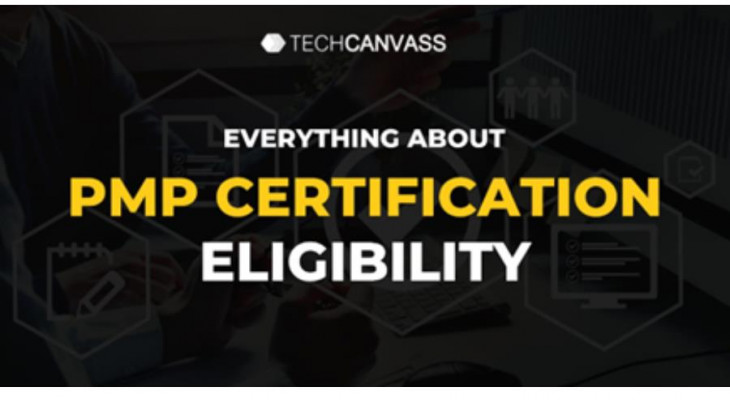The Project Management Institute directly offers working professionals the PMP Certification, also known as the Project Management Professional certification, a globally recognized professional title. It demonstrates project leadership experience and working knowledge using a Predictive, Agile, and Hybrid strategy. However, to become PMP certified, there is a long list of eligibility criteria that you need to follow. That is why it is necessary to understand the eligibility criteria in detail and all the aspects of it properly.
PMP Certification Eligibility depends on one’s educational background and professional experience. The minimal educational need to take the tests is a second degree. But while taking examinations does not ensure success, education, experience, and training are also crucial factors. Practical projects are also necessary as part of the training because the certification covers theory and practice.
Once you know the eligibility of it, you want to move ahead with the certification training. For this, Techcanvass is the best institution providing several PMP certification training courses to help you excel in your career. If you meet the requirements for the PMP and are anxious to get started, look into our PMP Training Course. To give candidates the most hands-on experience possible, Techcanvass delivers webinars on subjects related to the PMBOK/New PMBOK guide, 2000 Questions, Techniques Summaries, and Q&A Workshops every month.
Now, let’s move ahead and explore the certification eligibility criteria and related queries covered in this blog.
What are the PMP Certification Eligibility Requirements?
The following conditions must be met to qualify for PMP certification:
- Years of experience managing projects: Only one of the projects you worked on within a month will count toward your experience requirement. As long as you obtained experience in a professional setting, it doesn’t matter if a portion of your project management job was unpaid. Personal or academic initiatives like organizing your wedding do not count.
- Time spent in formal project management training: You should understand the ins and outs of project management before submitting an application for the PMP certification. This prerequisite applies to any course, workshop, or training session that teaches fundamental project management principles and issues an evaluation or certificate of completion. Be ready to offer details about the institutions and dates you went to, the names of the courses you finished, and the number of hours you need to qualify. The contact hours you have accrued never expire.
Depending on your school level, different PMP certification criteria apply. For instance, if you have a bachelor’s degree from college, you can sit for the PMP exam with less project management experience gained through on-the-job training.
|
Eligibility Requirements |
Project Management Experience |
Project Management Education |
|
Secondary degree |
5 years(60 months) |
35 contact hours |
|
4-year degree |
3 years (36 months) |
35 contact hours |
|
4-year or post-graduation degree from GAC accredited program |
2 years (24 months) |
35 contact hours |
Who Should Pursue PMP Certification?
There is a long range of candidates who want to pursue PMP certification. However, a group of people should apply for certification if they are serious about it. Project management software use is gradually but steadily changing, and here is who should go for the certification.
- The PMP certification is open to anyone who wants to learn about project management procedures as outlined by PMI.
- someone who wants to add value to their profile by earning a PMP certification and is trying to advance in their career objectives
- If you already work on and around numerous projects and are looking forward to some profile in Management, you might want to consider pursuing PMP Certification. This certification requires at least 4500 hours of experience in projects and a graduation certificate.
What is the Project Management Experience?
Project management experience includes organizing, supervising, leading, and managing projects. As an illustration, some typical duties of a project manager include:
Planning: The scope of the project, the resources that will be needed, the projected timescale, the communication plan, and other factors are all made clear in the blueprint that project managers produce.
Leading: Project managers guide the project team through the process, demonstrating their superior interpersonal and communication abilities.
Execution: A project manager will likely participate in the practical tasks necessary to advance the project.
Time management: Project managers keep everyone on track, resolve problems as they emerge, and communicate with team members and other stakeholders.
Budget: Establishing and maintaining a project budget is a crucial task for project managers. The project manager is in charge of managing unforeseen financial challenges and reallocating resources as required.
Documentation: With the aid of resources like data gathering and status reports, project managers maintain track of the advancement of each project.
Maintenance: It is essential to develop a strategy for the deliverable’s continued success, which includes maintenance and troubleshooting.
How to Get Project Management Experience?
The PMP is the industry standard for project management partly because of the high entry hurdle. So, where do you even begin?
Record your work
Now is the time to fully comprehend this. Your work may not appear on your PMP application if you don’t keep track of it. Details about the project work, such as the required hours, dates of employment, job, company information, references, and an experience description, are expected by PMI.
How do you determine whether a project you worked on meets the requirements? “A transitory endeavor made to create a distinctive product or service,” according to PMI, is its definition. In other words, everything with a clear timeline and deliverable.
Network
Attending conferences is a wonderful method to acquire suggestions on how to get started in project management. Additionally, if you network effectively, you might be able to use it to land a job. Networking is important to even the most seasoned project managers. Building a solid professional network early in your career is worthwhile.
Think about your sector
Project management is frequently used in environments like software companies and consultancy businesses. Look for positions with titles like business analyst and test manager for entry-level positions. But remember that organizing events, creating media, and creating websites all count as projects. You can work in a wide variety of various industries.
Leave job titles out
Your position at the time is irrelevant if you give examples of new goods, services, procedures, or systems you developed. In actuality, PMI isn’t even concerned about your present position. All you need to confirm that your project account is true is a reference who collaborated with you on it.
What Should I Do If I Cannot Meet the Requirements for PMP Certification?
The qualification that would be more appropriate for you at this time is Certified Associate in Project Management (CAPM). Let’s say a professional cannot fulfill the prerequisites for PMP certification. In that instance, they can start with the CAPM Certification with a CAPM Training and later choose the PMP certification after gaining the necessary expertise.
Advertisement




